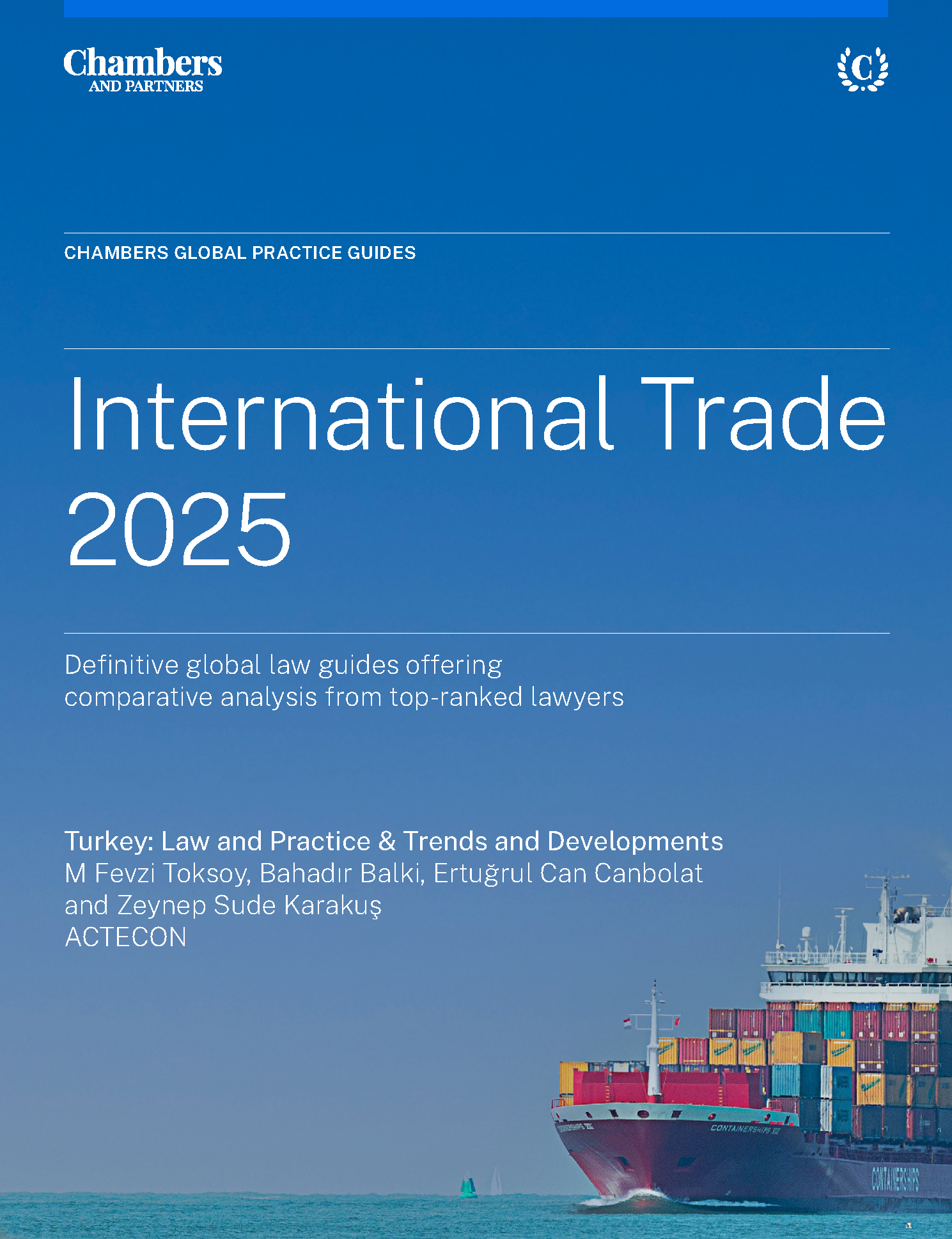Capacity to Sue of Consumers Whose Interests are Affected was Held under the Microscope of the Administrative Courts in Turkey
| Competition Law

Capacity to Sue of Consumers Whose Interests Are Affected Was Held Under the Microscope of the Administrative Courts in Turkey
Article by Ayberk Kurt, Alper Karafil
The issue of the “appropriate claimant” or the capacity to sue always comes into question at the stage of the judicial review of the decisions of the competition authorities. It is not as easy as it may seem from the first glance, and the case law of the Administrative courts in Turkey is a proof thereof.
In December 2019, Ankara Regional Administrative Court (“Appeal Court”) published its decision[1] reversing the Ankara 13. Administrative Court’s (“Court”) annulment decision[2] due to the claimant’s lack of capacity to sue, in which the Turkish Competition Authority’s (“TCA”) Duru Bulgur Decision[3] was evaluated. In its decision, the Appeal Court stated that the TCA’s decision of not initiating an investigation regarding the relevant case may be brought before the administrative courts as a lawsuit by the consumers whose interests are affected because of the violation of the Law No. 4054 on the Protection of Competition (“Competition Law”).
The importance of the Appeal Court’s decision stems from the demonstration of that in case the price of the product purchased by the consumer is increased, as a result of the respective violation, maintenance of the resale price is a type of violation that directly concerns the consumer.
As a result of the preliminary investigation conducted ex officio by the TCA against the claim that Duru Bulgur Gıda San. ve Tic. A.Ş. (“Duru Bulgur”) determines the resale prices in its sales aimed at the retail chains in two cities, it has been determined that the retailers intervene in the shelf prices. Accordingly, the TCA emphasized that in terms of the anti-competitive effects of resale price maintenance, the market subject to the respective investigation has an unconcentrated structure and the fact that the prices are close to each other stems from that the suppliers operating in the market for cereals and legumes are monitoring each other’s prices up-close. The TCA stated that since Duru Bulgur does not have the ability to make a sanction against chain retailers in terms of its economic rationality and there is provision in the agreement setting forth that the retailers shall comply with the shelf prices, it has been decided not to initiate a full-fledged investigation against Duru Bulgur. Nevertheless, the TCA did not refrain from sending an opinion to Duru Bulgur notifying that such practices which may be deemed as resale price maintenance must be terminated.
Following the TCA’s respective decision, a consumer brought this decision to the administrative court by claiming that although there was a remarkable amount of evidence indicating that Duru Bulgur had violated the Competition Law through resale price maintenance, the TCA’s decision of not initiating an investigation was not justifiable.
As to determination of whether the consumer’s capacity to sue exist or not, the Court indicated that although the public interest has a strong influence over the matter in dispute, there must be a legitimate, up-to-date and concrete interest relationship between the matter in dispute and the claimant. The Court also emphasized that in the case of acceptance of the contrary situation, it will be possible to make any kind of matter that is considered to be of public interest suable by all citizens. In such case, this would be contrary to the purpose of the legislative regulation regarding the capacity to sue. Accordingly, although the claimant expressed that he consumes Duru Bulgur’s products and his interest were violated as a consequence of Duru Bulgur’s practice of increasing its consumer oriented sale prices, the Court considered that being a citizen with the title of consumer does not ensure the establishment of the legitimate, up-to-date and concrete interest relationship between the matter in dispute and the claimant. Thus, the Court concluded that the claimant did not have the capacity to sue in respect of the case at hand and therefore decided to dismiss the case due to the claimant’s lack of capacity to sue.
However, the Appeal Court clearly expressed in its reasoned decision that it disagrees with the aforementioned decision of the Court. As regards to the capacity to sue, the Appeal Court emphasized that pursuant to Article 2 of the Law No. 2577 on Administrative Jurisdiction Procedures, administrative lawsuits shall be filed by those whose interests are violated on the grounds that the relevant administrative process is illegal in terms of authority, cause, form, subject and purpose. Accordingly, the Appeal Court evaluated that when the evaluation of the effects of Duru Bulgur’s violation of competition rules via resale price maintenance on the price of dry food products offered for sale has been taken into consideration, it is clear that the interests of consumers will be affected.
Indeed, the Appeal Court concluded that the decision of not initiating a full-fledged investigation following the respective preliminary investigation may be brought before the administrative courts as a lawsuit by the consumers whose interests are affected because of the violation and thus, the Appeal Court decided to grant the claimant’s request of appeal and revoke the decision of the Court based on the foregoing justifications.
This decision of the Appeal Court has proved once more that how directly a violation of competition rules can affect even an individual consumer. On the other hand, this highlight not to be neglected should be evocative of that although the competition law is traditionally conceived as regulation of the marketplace, it also serves to deliver maximum benefits for consumer welfare and optimize the consumers’ interests. Herewith, in order for prevention of consumer harm, the decision of the Appeal Court bids fair to establish precedent that the competition policy can also serve the purpose of protecting individual consumers in Turkey.
[1] Ankara Regional Administrative Court’s Decision dated 20.11.2019 and numbered E: 2019/1829 K: 2019/2624, https://www.rekabet.gov.tr/Safahat?safahatId=b6b20a25-d772-41c0-89fa-725c3b69859b.
[2] Ankara 13. Administrative Court’s Decision dated 20.12.2018 and numbered E: 2018/1875 K: 2018/2595, https://www.rekabet.gov.tr/Safahat?safahatId=6f7a9aad-df68-4996-b230-bda477175f7b.
[3] The TCA’s Duru Bulgur Decision dated 08.03.2018 and numbered 18-07/112-59, https://www.rekabet.gov.tr/Karar?kararId=be453aa8-9d8d-49ec-adf1-c16a0f073631.







